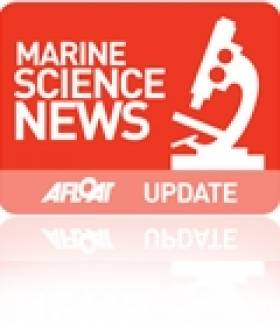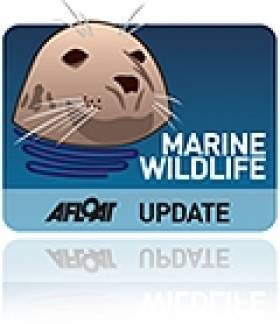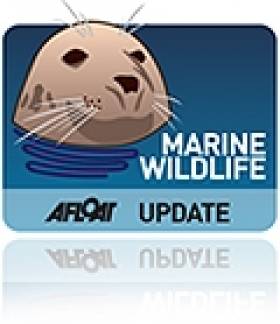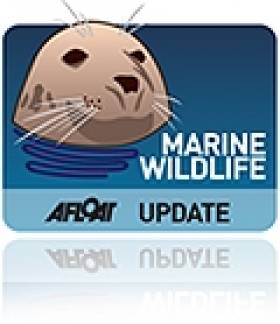Displaying items by tag: research
'The Sea: One of Ireland's Greatest Natural Resources' - Coveney
The Minister was speaking during a visit to the Marine Institute's research vessel, RV Celtic Explorer, on its return from a mission to the Labrador and Newfoundland Seas.
He added "I am particularly pleased that this is my first official engagement as Minister for Agriculture, Marine and Food. The work of the RV Celtic Explorer highlights the essential nature of marine research, development and sustainable management, through which Ireland is developing a strong and well-deserved reputation as an emerging centre of excellence, where we have prominent roles in many European and international marine science bodies."
Minister Coveney commended the Marine Institute and its Chief Executive, Dr Peter Heffernan, for its leading and proactive role in the areas of fisheries science, marine environment and food safety as well as ocean science and said that he looked forward to working closely with the Institute and benefitting from the research and advice which they would undertake and provide.
The Minister noted that Ireland's two national research vessels – RV Celtic Explorer and RV Celtic Voyager – will record 267 days at sea during 2011, during which they will be engaged in fisheries surveys, underwater mapping, climate studies and deepwater surveys.
Vets Get to Grips With Whale, Dolphin Post-Mortems
The Irish Whale and Dolphin Group's (IWDG) recent workshop on the post-mortem examination of stranded dolphins and whales is hoped to encourage the building of much needed experience for Ireland's vets dealing with marine animals.
More than 20 veterinarians from across the country attended the workshop in Athlone, where they were shown how to carry out a post-mortem from a research perspective and taken through the post-mortem protocol, as well as the collection of samples for various parameters from bacteriology to genetics.
"The IWDG have long advocated that the post-mortem examination of stranded cetaceans should be carried out by veterinary pathologists to determine their cause of death and provide samples for life-history studies," said the group's Dr Simon Berrow.
Fin Whales Captured on Video
The Irish Whale and Dolphin Group (IWDG) has posted photos and video of last weekend's fin whale research expedition off the coast of Co Waterford. SEE VIDEO BELOW
The group encountered a number of fin whales feeding between Hook Head and Helvick Head, and got close enough to two whales swimming near the shore to take clear photos and a biopsy sample.
Another biopsy was taken from a group of three whales feeding just below the surface close to Dungarvan.
"These whales were swimming in water just 15m deep. For an animal whose body length is 20m, this was a surprising discovery," said the IWDG's Conor Ryan.
The Irish Independent reports that the majority of fin whale sightings normally come from Cork and along the western seaboard, but most recent spottings have been from further east in Waterford and on the Wexford coast.
European Shark Experts Gather in Galway
International experts on sharks, skates and rays will meet at the Marine Institute in Galway for the 14th Annual European Elasmobranch* Association Conference from 10th-13th November 2010.
The waters around Ireland are home to a rich diversity of sharks, skates and rays, with over forty different species regularly recorded. Since 1997 the Irish Elasmobranch Group (IEG) has been promoting the research, conservation and awareness of these animals in Irish waters.
"Ireland is not alone in having a specific body dedicated to the promotion of shark research with many other European countries having similar groups," said conference organiser Dr. Edward Farrell who has spent the last four years studying Smooth Hound Sharks under the supervision of Dr. Stefano Mariani of the University College, Dublin and Dr. Maurice Clarke of the Marine Institute. The European Elasmobranch Association (EEA) is a share-holding organisation for coordinating the activities of all the national shark organisations dedicated to the study, management or conservation of sharks, skates and rays within Europe.
"Irish shark research will feature strongly at the conference," said Dr. Clarke, "with presentations on the satellite tagging of porbeagle sharks and a global population study of blue sharks among the highlights."
The conference this year will cover a wide variety of topics including elasmobranch taxonomy, biology, management and conservation, fisheries and ecology. It will also be preceded by a meeting of the Shark Specialist Group of the International Union for the Conservation of Nature (IUCN) on Tuesday 9th November in Galway. This group promotes the long term conservation of the world's sharks and related species. Their task will be to assess the status of a number of threatened and endangered Northeast Atlantic species. For more information see http://www.iucnssg.org.
"The annual EEA conference provides a unique opportunity for a diverse range of member organisations to exchange ideas and research, and forge links to promote shark, skate and ray conservation throughout Europe and the rest of the world," said IEG outreach officer Emmet Jackson of BIM. "Galway Atlantaquaria is hosting the welcome reception and delegates are sure to enjoy the elasmobranch exhibits, particularly the impressive ray pool and the world's only captive white skate."
Further details of this conference, a first for Ireland, are available on the Irish Elasmobranch Group website and the EEA website at:
http://www.irishelasmobranchgroup.org/ and http://www.eulasmo.org/
* "Elasmobranch" is a collective name for sharks, skates and rays.



























































